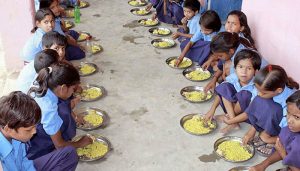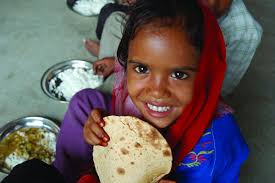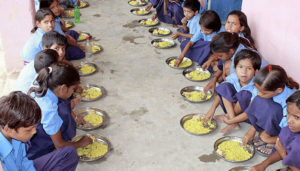
If Children’s Nutrition Is Corrected, India Can Make More Graduates
Mount Abu: According to a new research, if the children’s nutrition is corrected by ensuring supplementary nutrition in the age bracket of zero-three years, India can bring up raise the number of graduates in India by 3.17 million.

According to the details of the new study published on January 1 2018 in the Journal of Nutrition, there was big difference considering the age bracket. For the children who received extra nutritious diet through government-run programmes right from the time they were in their mothers’ wombs until age three were 11 percent more likely to acquire a graduate degree than those who received them between ages three and six.
The early life beneficiaries of nutrition supplements, if supplied through the Integrated Child Development Services (ICDS), were also nine percent more likely to complete secondary level of education and five per cent more likely to get employed or get enrolled in higher education when they grow up as yound adults. And six per cent more likely to have not married till the age of 25, as per the study.

If given adequate nutrition during what can be called the 1,000 day window of opportunity – the time between pregnancy and a child’s second birthday is believed to protect the children against stunting and cognitive deficiencies. Researchers who followed the lives of children and mothers at anganwadis – which are government centres that offer health and nutrition services – found positive long-term health impacts persist till adolescence.
When the researchers studied anganwadi children aged 13-18, it was found that early life beneficiaries were 14 mm taller, with healthier cardiovascular systems, more likely to be enrolled in school and about a grade ahead of others, earlier studies had proved. The new study offers conclusive evidence that adequate high nourishment to unborn babies and infants creates benefits that enhance their education and employment prospects in later life.
With the education benefit of early-life nutrition extending upto college, the researchers estimated that such daily exposure could help potentially increase India’s college graduates from 7.5 percent of the country’s 73.8 million 20-24-year-olds to 11.8 percent. An increase in the college graduation rate, in turn, would deliver significant economic gains due to the higher wages.
This would be a significant economic achievement for our country India which has one in four of the world’s 156 million stunted under-five-year-olds. In 2016 itself, according to the estimates, the growth faltering among India’s under-five-year-olds would cost USD37.9 billion in future, through lost schooling and economic productivity.
By delaying the age at marriage of beneficiaries, better nutrition in the crucial first 1,000 days of life would also foster a new generation of much healthier and brainier children. A single year’s delay in marriage lowered the chance of a woman giving birth at their home by 2.2 percent, increased the breastfeeding rate by 5.5 percent and the chance of children being fully vaccinated by 4.6 percent, according to this 2017 Journal of Development Economics study.
You May Also Read: India Needs To Do More To Safeguard Its Interests In Seychelles As Naval Base Plan Faces Failure